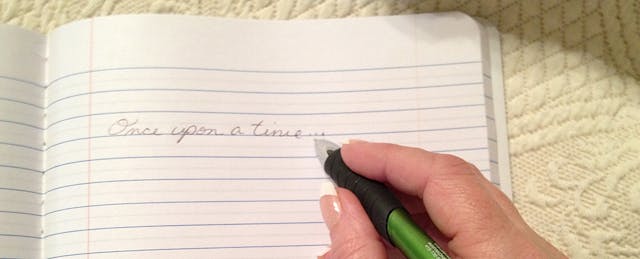Turnitin, a popular plagiarism checker used in many schools, wants students to do more than simply turn papers in. It wants them to check their writing--and not just to cross the t’s and dot the i’s, but to make sure their arguments and prose are logical and sound.
To do this, it is acquiring LightSide Labs, a startup in Pittsburgh, PA that uses machine learning to develop a writing assistant that offers feedback and suggestions as students work through their drafts. Dubbed the “Revision Assistant,” the online tool, designed for students in grades 6-12, highlights passages and offers comments on ways to add details and clarity to create stronger arguments, based on rubrics and prompts set by the teacher.
According to Elijah Mayfield, co-founder of LightSide Labs, the tool “moves the drafting and editing part of writing from a teacher-driven process into the hands of students.” Each submitted draft can be viewed by the teacher to see a history of the student’s editing and rewriting process. Students can also view a “Signal Check,” a prediction of what score the paper might receive.
Research suggests automated essay graders are competent at predicting the scores given by their human counterparts. (Here’s an in-depth study on how nine automated scorers, including LightSide Labs, performed.) It’s important to note that machine learning algorithms don’t actually “read” essays; rather, they examine essays already graded by humans to learn and replicate how to score them.
Mayfield acknowledges that the need for training poses a limitation for his Revision Assistant, which currently only works for dozens of prompts. But he’s optimistic that Turnitin’s bank of “hundreds of millions of student essays” can fuel the tool to reliably predict essays scores across a wide range of prompts and topics.
Founded in 2013, LightSide Labs built its brand through a series of competitions and grants, most notably the Automated Student Assessment Prize sponsored by the Hewlett Foundation and organized by Kaggle. It also received grants from the Gates Foundation’s Literacy Courseware Challenge and is currently conducting pilots in in western Pennsylvania and the Bronx in New York. (Here’s what Mayfield learned from working with teachers and students.)
Mayfield was considering raising venture capital and mulling over term sheets when he met Turnitin’s CEO, Chris Caren, in July 2014. For Mayfield, it was a way to jumpstart the product development and distribution process and an opportunity to lead the research and development efforts of a well-respected company. “We get financing to grow our team in Pittsburgh, as well as a built-in network of 50 salespeople and 24 million students who will be available to try our product,” says Mayfield.
For Turnitin, the deal is a step in continuing efforts to broaden its offerings and, perhaps, be known for something other than anti-plagiarism, “which has a negative connotation,” says the company’s VP of Marketing, Chris Harrick. He sees Lightside Labs’ focus on the student-driven writing process as a “natural fit” with TurnItIn tools like Grademark, which lets instructors offer more varied and rich forms of feedback.
Harrick admits the idea behind automated assessments “is controversial, but we think it can be used intelligently at the front end of the [writing] process to give students more control and improvement before they turn it in.”
For the rest of 2014, LightSide Labs will focus on its Gates Foundation-funded pilots. Integrating the Revision Assistant and other technologies will begin in mid-2015, with the goal of rolling out the product by the beginning of 2016.
Terms of the deal were not disclosed. The LightSide Labs team will remain in its Pittsburgh office and is planning to double its team of ten by adding engineers, user interface and design experts and data scientists.
Turnitin claims users in 10,000 schools in 135 countries. According to Harrick, these include more than 1,500 higher-ed institutions (serving an estimated 9 million students) and around 5,000 high schools and middle schools (7 million students) in the U.S.
It’s also seeing growing traction in other English-speaking countries like the U.K., Ireland, Australia and New Zealand. Turnitin certainly has plans to open these overseas markets to LightSide Labs, which is currently focused on U.S. secondary schools. “We certainly think the product can be useful for intermediate to advanced English language learners in other countries,” says Harrick.
In June 2014, Turnitin was acquired by private equity firm, Insight Venture Partners. “It’s not a pure coincidence that we made this deal after the change in ownership,” states Harrick. “Insight is very committed to growth, and we’re now allowed to invest more to broaden our product portfolio. You’ll see more acquisitions and more international expansion and heavy investments in secondary education.”


